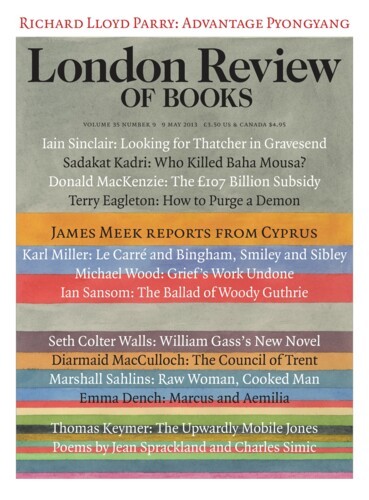Short Cuts: Declared un-British
Sadakat Kadri, 18 June 2015
The removal of citizenship has been used as a penalty for disloyalty only rarely in Britain. A handful of spies with dual nationality were denaturalised during the Cold War, but the last case in the 20th century was in 1973. Change came slowly even after 9/11: only five people were stripped of British citizenship by Labour home secretaries, and the emblematic bogeyman of the era, the




